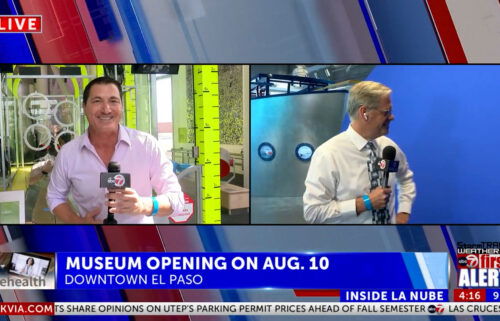Students ‘disgusted’ by transgender bans
Click here for updates on this story
MISSOULA, Montana (Missoulian) — The Associated Students of the University of Montana held a press conference on Thursday morning to respond to the National Collegiate Athletic Association’s statement opposing transgender athlete bans.
Speakers also addressed House Bill 112, recently introduced in the Legislature by Rep. John Fuller, R-Whitefish, that would ban transgender women from playing on women’s sports teams.
The NCAA released a statement on Tuesday saying championship games would only be held at locations that are “safe, healthy and free of discrimination.”
UM Student Political Action Director Maggie Bornstein opened the conference to talk about the ramifications HB 112, and potential subsequent NCAA withdrawal from Montana university championship games, would have on the state.
“We’ve been disgusted by the mischaracterization of transgender community members who deserve to be uplifted and affirmed for the undeniable ways they make the University of Montana better,” she said.
Beatrix Frissell, a sophomore on the women’s cross country team, said she has competed alongside a transgender teammate.
“I myself had the privilege to compete and train daily alongside a transgender athlete in my first year as a collegiate athlete,” Frissell said. “In knowing our day to day training, my own development as an athlete and the progression of my teammate, not once did I feel that my transgender teammate had an unfair advantage in my sport.”
Frissell is glad the NCAA is taking a stand on attempts by states to ban transgender athletes, and its statement sends a clear message that discrimination will not be tolerated, she said.
Senior Associate Athletic Director Jean Gee said, “Transgender student athletes do not transition to win medals.”
Speakers also addressed the financial impacts the passage of the bill would have, not only on the university but the state as a whole.
“The loss of a handful of football games will have a ripple effect on the entire athletic community, including what House Bill 112 claims to save — women’s sports,” Bornstein said.
Bornstein cited a 2016 study from the university’s Bureau of Business and Economic Research Director Patrick Barkey that estimates that each home football game generates about $2.53 million in revenue for the Missoula community.
Gee said that study was conducted five years ago, and “we can only imagine what that number is now.”
“So across three potential football playoff games, that’s an economic impact to this community of $7.5 million,” Gee said. “That is not an insignificant amount of money.”
Gee referenced North Carolina’s “bathroom bill,” 2016 legislation that attempted to restrict bathroom usage based on biological sex. The NCAA pulled championship games out of the state as a result of its passage.
“All we need to do is look at history,” Gee said.
Athletic events are the lifeblood of the university, and the revenue generated by home football games helps to fund other sports programs on campus, Bornstein said.
Frissell concluded, “As we look towards the future, I encourage our Montana State Legislature and governor to consider inclusion rather than cutting off the opportunity of sport for those who may need it most.”
Please note: This content carries a strict local market embargo. If you share the same market as the contributor of this article, you may not use it on any platform.




